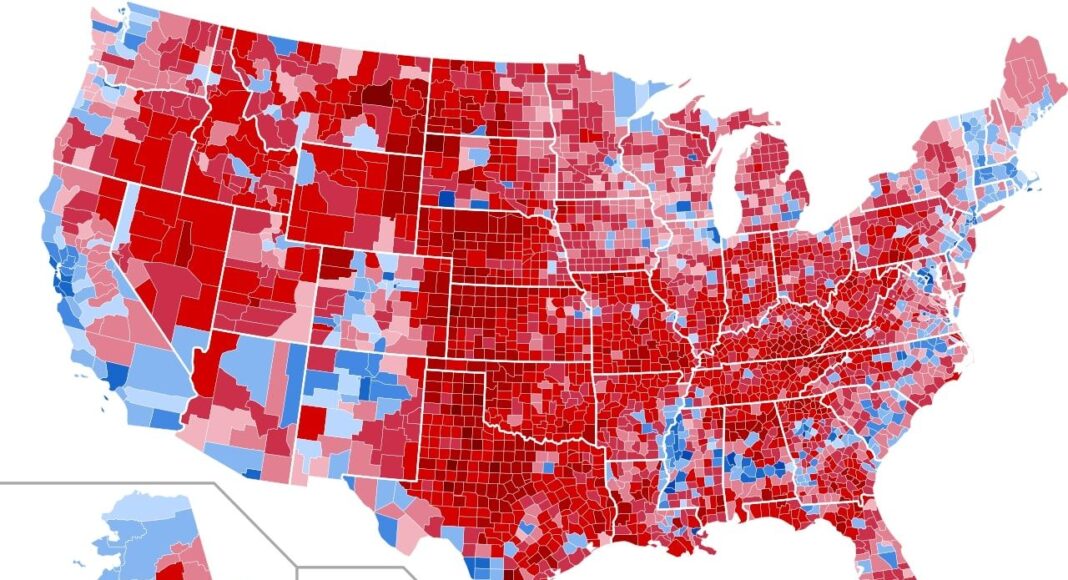The modern political era is unlike anything we have witnessed in our lifetimes.
The current tribulations are often compared to those of the 1960s and 1970s, when the United States was in the throes of the Civil Rights Era, the Vietnam War, the Sexual Revolution, the growing global threat of communism, and a world’s longevity uncertain.
At the same time, the political parties experienced identity crises, with many traditional Democrats abandoning the Party of Jackson for Ronald Reagan, dubbing themselves “Reagan Democrats.” The unstable eras of the 1960s and 1970s, also plagued by the scandals of the Nixon Administration, produced Republican sweeps of all three elections held in the 1980s.
So, while there is nothing new under the sun, the current is markedly more nuanced, since both parties are in dire identity crises, the world appears to be on fire figuratively – and perhaps literally, depending on who you ask – and the aforementioned problems of the 1960s and 1970s only seem more pronounced and severe than they were then, mainly due to the influence and ubiquitousness of social and mainstream media.
The current state of the GOP is not one that begins and ends with Reagan and Trump, rather the brief history lends itself to how we ended up in our current predicament.
The George H. W. Bush Administration is seen as the beginning of the end for the modern Republican. With the “read my lips, no new taxes” platitude resulting in complete and total embarrassment in 1992, Republicans were then seen as a party of crony Wall Street capitalism, while Bill Clinton’s moderate, blue dog doctrines of economic stability and moderate social stances allowed Democrats to reclaim the faith of the working class.
The 1994 Republican Revolution delivered Republicans control of the U.S. House for the first time since 1952 and the Senate since 1987, only the fourth time since 1933 that they had held the latter chamber. The result between Bill Clinton and Newt Gingrich was the “Contract with America,” creating the last time our budget had a surplus; it lasted until 2001.
So, while the 1992 and 1994 elections were defined by a clear rejection of the results of the last election, they perpetuated the idiosyncratic “want-what-we-can’t-have” political attitudes of the average American, while also creating a blurred line between the parties. The 1994 midterms feature the last time a Republican won a House seat in Massachusetts, as well as a collective Democratic Congressional majority from the Southern states. The parties were defined more by sectionalism rather than a national standpoint.
Now, election results have hardly ever been as partisan. In 1994, nineteen states had split U.S. Senate delegations, meaning a Republican held one state’s Senate seat, while a Democrat held the other. Now, we’re at a historic low of just five states, and it’s possible two of them lose that status after the 2024 race. It looked as if 2022 would help the GOP branch out into difficult territory – they seem to have done so in New York – but politics remains just as partisan as ever. The GOP made paltry gains in the House and took a net loss in the Senate, while also forfeiting several winnable governorships.
Enter the intraparty fighting. We’re basically on two sides of an agonizingly oversimplified aisle: It’s all Trump’s fault, or it’s the establishment GOP’s fault.
Local politicians cannot be nationalized. It’s what produces iconoclastic and independent politicians, such as Jarred Golden from Maine or Brian Fitzpatrick from Pennsylvania. Even Long Island’s GOP House delegation will stand up to the party while fighting for SALT deductions. This is not a mistake in our government, it’s a feature.
Some say that the GOP should return to the politics of George Bush and John McCain. This is a thought posited by current Presidential long-shot candidate Asa Hutchinson, the former Governor of Arkansas. If there’s anything we’ve learned from Bush and McCain, it’s that they could not win elections handily – or at all – but their tenures were also defined by warmongering, big-spending, and big-government encroachment on business and personal liberties.
Like Trump or not, his reintroduction of populism to the American electorate was a booster shot that was desperately required before the conservative movement bottomed out along with the Rust Belt in 2016. Some say only angry, white rural voters are the reason Trump won, forgetting that Barack Obama, the first black president, won the overwhelmingly white states of Wisconsin and Michigan by unprecedented double-digit margins, especially after Wisconsin was decided by less than one percentage point just eight years prior.
Trump’s populist overtones not only returned those states to the centerfold of competition – he was the first Republican since Reagan to win Wisconsin (1984) and the first since Bush Sr. to win Michigan (1988) – but he also narrowed margins in states not even on the radar. Oregon and Delaware were dangerously close to being decided by single-digit margins. Trump was able to draw hefty crowds in Washington and Connecticut. The fact that Minnesota, the state with the longest Democratic winning streak (since 1976), was not called on election night shocked the world.
Now, after new life has been breathed into a dying, virtually irrelevant party, we’re expected to pump the brakes and return to the losing strategy? Something, something, repeating the same thing and expecting different results is the definition of insanity.
While Trump has his baggage, and cannot be the standard bearer of the Party of Lincoln forever, his message and his policies must remain. A more palatable candidate will arise to assert that government is merely a tool best used sparingly, not the be-all end-all to our problems.
The current tribulations are often compared to those of the 1960s and 1970s, when the United States was in the throes of the Civil Rights Era, the Vietnam War, the Sexual Revolution, the





